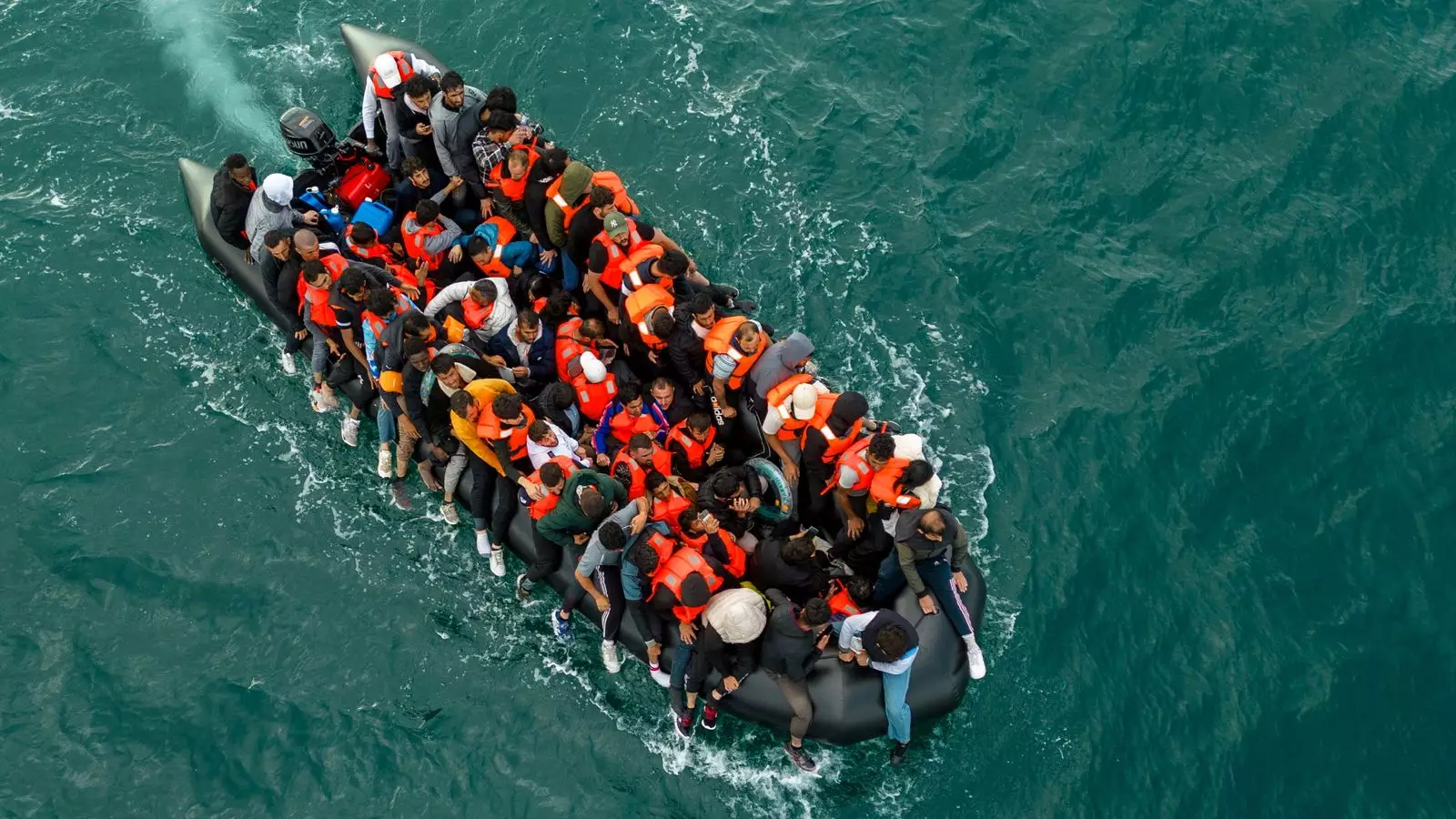The recent modification in the UK’s immigration policy, specifically the Home Office’s new guidance regarding citizenship for illegal migrants, marks a significant change in how the government approaches those seeking refuge. This move, characterized by an outright rejection of citizenship for individuals arriving in the UK via dangerous routes, such as small boats or concealed within vehicles, has sparked widespread debate. The consequences of this policy could reshape the landscape of immigration ethics and humanitarian consideration in the UK.
The crux of the revised “Good Character” guidance is clear: individuals arriving illegally are, as of February 10, 2025, generally prohibited from obtaining British citizenship. This guidance, which stipulates that dangerous journeys—defined to include traveling in small boats or hidden in vehicles—qualify an individual for ineligibility, marks a stark departure from previous policies. Prior to this change, refugees could be considered for citizenship after a decade, even if they had arrived through irregular routes.
This new criterion has raised alarms among human rights activists and political figures. Critics argue that it introduces a two-tier system where individuals, having fled life-threatening situations, are relegated to second-class status within society. Assertions that such a policy reflects a lack of compassion and understanding for the complexities surrounding asylum seekers and refugees are becoming increasingly vocal. The core of the argument against this guidance centers on the belief that once someone achieves refugee status, they should not be hindered in the pursuit of citizenship.
The political backlash against this new directive has been substantial. Various Labour MPs, including Stella Creasy, have condemned the changes, asserting that it is fundamentally unjust to recognize someone as a refugee but then deny them the possibility of full inclusion in British society. In her statements via social media, Creasy emphasized the need for a policy that allows refugees to integrate fully, rather than live on the fringes of society, perpetually marked as outsiders.
The Refugee Council echoed these sentiments, arguing that this revision contradicts the desires of the British populace, which largely supports the integration of refugees into local communities. The perspective that refugees should be allowed to contribute to society is not only a call for empathy but also a recognition of the socio-economic benefits that immigration can bring.
In defense of the policy shift, the Home Office has reiterated that existing laws already restrict individuals arriving through illegal routes from achieving citizenship. The updated policy aims to reinforce these regulations and clarify the intentions behind them. However, this justification has done little to quell the mounting criticisms or to address the underlying issues related to the management of refugee status and citizenship pathways.
Additionally, the political landscape surrounding immigration is rapidly evolving. With multiple parties striving to address smuggling and immigration enforcement, the government’s recent Border, Security, Asylum and Immigration Bill exemplifies a broader commitment to stringent immigration control. This bill, which punctuates the government’s dedication to tackling illegal immigration through policies that may seem more punitive than restorative, signals that the future of UK citizenship will likely become increasingly complex and fraught with challenges.
One cannot ignore the broader consequences that stem from the stigmatization of illegal migrants. By publicly branding those who arrive through dangerous means as unworthy of citizenship, the government risks fostering a culture of division. The societal implications of such narratives can be troubling, potentially exacerbating xenophobia and reducing the compassionate discourse that has typically framed discourse around asylum seekers.
The UK’s Home Office’s recent guidance signifies a troubling shift towards more stringent immigration policies, which could have far-reaching implications. As the country grapples with the moral and ethical obligations to those seeking refuge, the call for reevaluation of such policies grows louder—not only for the sake of fairness but also for the social fabric of British society as a whole. The challenge now lies in reconciling the need for border security with the principles of humanity and inclusivity.


Leave a Reply